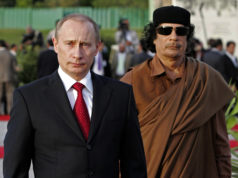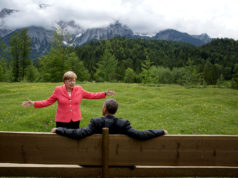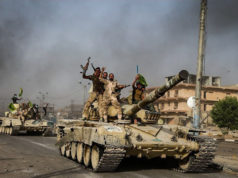Mounting economic hardships plaguing northern Sudan have given political activist group “Change Now” a reason to believe that the Arab-African state is on the verge of its own revolution. Protests, largely concentrated in Sudan’s capital and other cities with universities, lack large numbers and longevity, but their increasing frequency and underlying denouncement of the government is beginning to reflect the 1985 ousting of President Gaafar Nimeiri’s regime.
Last December a protest sparked by villagers displaced by a hydro-electric dam inspired a week of student demonstrations when authorities responded by closing the University of Khartoum. Similar to in Tunisia and other “Arab Spring” affected states, a participant in the demonstration explained, “It turned into a protest not just against the dam but against poverty, inflation and the bad situation for students.”

Sudanese and Syrians protest outside the Syrian embassy in Khartoum in response to China and Russia’s veto of the UNSC resolution against Syria. |
Khartoum’s economic turmoil was augmented last July with South Sudan’s succession, which removed 75% of the North’s oil fields. Apart from this loss in revenue, the regime is being criticized for the state’s annual inflation rate of 18%, high costs of importing food, low values of state currency, the lack of foreign investors, and $38 billion in external debt. Northern Sudanese President Omar Hassan al-Bashir, currently wanted by the International Criminal Court on charges of war crimes for his government’s involvement in Darfur, plans to implement a three year economic program in an effort to alleviate such hardships.
While it remains to be seen whether there is enough pressure for an “Arab Spring”-like uprising to explode in Sudan, it seems that social and political unrest are likely to continue as the cost of living increases and domestic job prospects remain dismal. This development begs the question: Will the Arab uprisings continue to spread to new countries in 2012?





